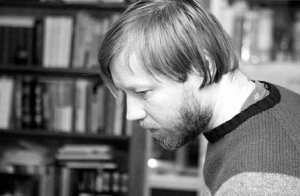Volume VI | Issue 2
Pre-monsoon showers sway the mangoes outside my window. They hang seemingly close at hand but are just beyond plucking distance. As I gaze and gaze on them the condition of simultaneously being near and being far metaphorises into many things. Emerging deep from my mind is Hölderlin’s intuition: this is the experience of God. But I have the stunning new issue of Poetry at Sangam guest edited by Philip Nikolayev uppermost in my mind. Nearness and distance morphs into his position vis-a-vis Anglophone poetry in India. He’s the literary activist behind an Indian poetry anthology and supports e-journals; he’s a translator from the Sanskrit, Urdu and Russian; the inner chambers of his poetry collections resonate with philosophical enquiries and the everydayness of subcontinental life as well as from the States where he lives, and Russia – which he once called his Ithaca –where he was born. Philip Nikolayev is one of the founding editors of Fulcrum, “an annual of poetry and aesthetics”. I thrill to his imagination, the luminosity of his words, his range and invitation to the engaged reader; to the ‘immured sonnet’ form he invented which is the sonnet embedded in wrap-around text so that the two form a perfect square and are differentiated only typographically. You the reader discover the two are linked by more than their shared square embodiment as you dissolve into its welcoming light. Read three immured sonnets here. You can read his new translations of Vitaly Pukhanov’s poems from the Russian here, ‘ …I have not seen my mother for such a long time/ that old ladies have started to remind me of her./ Here she is on her way to buy bread,/ here she is awaiting the streetcar in the cold,/ and here she is in a line at the savings bank.’ Once again, dear reader, give thanks to translators.
And to our behind-the-scene person, the efficient and kind webmaster Saurabh Agarwal. Read here Philip Nikolayev’s own poems of playfulness and profundity ‘…it is the kind of silence/ where every sound does violence/ every drop of a pin/ wreaks havoc brings ruin’. Three are new, three previously published; each one’s a delight. I was delighted when he agreed to guest edit this issue, even more when he posted on his FB page,‘This is a work of amor’. I’m so grateful Poetry at Sangam is a conduit for bringing this superb reading experience to you !

— Priya Sarukkai Chabria
In combining these poets and these poems for this issue of Sangam, I followed the principle of diversity of talent, in the certainty that meaningful interconnections will be discovered within that variety by the discerning reader.
Here are six poets, each represented by six works, as requested by Sangam House. Most of the texts have not been published before. The poets, all vivid and incisive in their individual ways and different in age, voice, life experience, and geography, are of the kind for whom love of language is not merely a trade but a lifestyle, a life. Each of them is inextricably devoted to poetry and obsessed with the exploratory capacities of the lyric word. They have at least that in common, apart from the realities and intuitions inevitably shared by thinkers living simultaneously through a chunk of world history. Each poet is a galaxy, but they are galaxies of the same human universe, galaxies of the earth.
John Hennessy, an American Molotov cocktail of Catholic Irish and Italian roots, professor of poetry in the woods of Amherst, MA, examines the affective life and how it is coexists with the spiritual. Certain strands of East-Coast landscape flow through his poems, sublime in their natural beauty and surreally tortured by industrial degradation.
Mona Zote is a resident of Aizawl, the capital city of North-Eastern Indian state of Mizoram, a land of tall rolling hills, valleys, lakes, and rivers. Mizoram’s landscape and life are expressed in moving imagery in her poems.
Stephen Sturgeon is an “overeducated” literary scholar and art connoisseur steeped especially in the entire long history of English and American poetry. His innovative, metamorphic writing transcends tradition not by avoiding but by owning it.
Medha Singh, of New Delhi, the daughter of well-known Hindi poets, is fiercely carving out an aesthetic space of her own in English. She creates new tensions and energies by exploiting the formal continuum between the traditionally shaped poem and the prose paragraph, always remaining on the side of poetry.
Marc Vincenz, an Anglo-Swiss born and raised in Hong Kong, has lived at length in China, Iceland, England, and Switzerland before relocating several years ago to the US. His poetry, musical, imagistic and varied, reflects this breadth of experience.
Vitaly Pukhanov, a Russian born and raised in Ukraine and living in Moscow for the past three decades or so, writes with the emotional wisdom and intensity characteristic of the best in the Russian lyric tradition. Please read these poets and welcome them in your hearts.
This site is designed and maintained by GONECASE